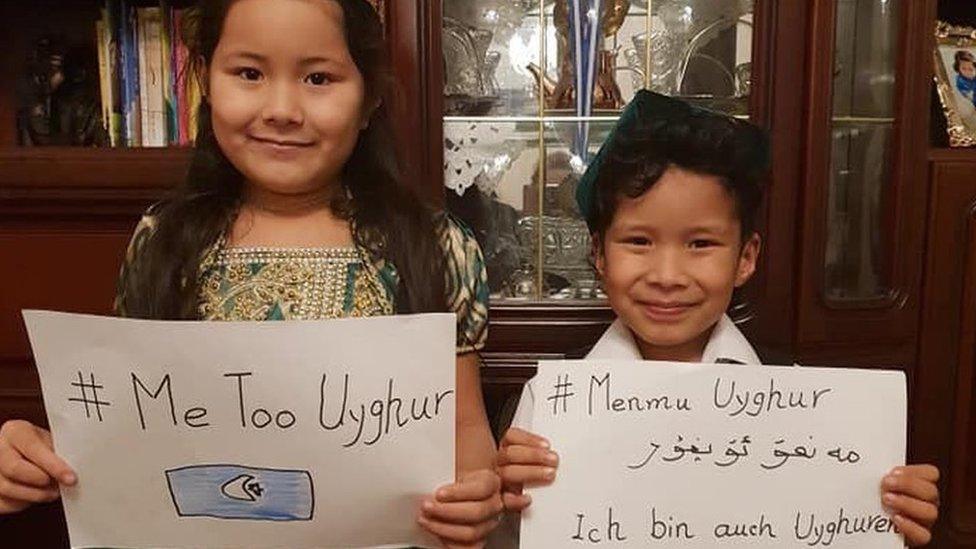Tashpolat Tiyip: The Uighur leading geographer who vanished in China
- Published
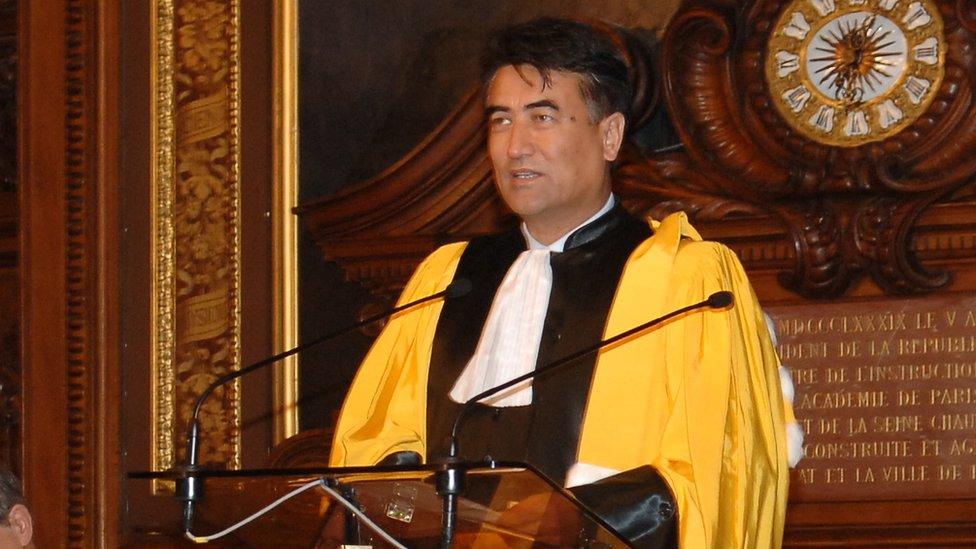
Until 2017, Tashpolat Tiyip was a model academic, head of Xinjiang University, globally connected, and with an honorary degree from a prestigious Paris university.
But that year, without warning, he disappeared, with no word from officials. His friends believe that after a secret trial, Prof Tiyip was convicted of separatism and sentenced to death.
Prof Tiyip is a Muslim Uighur, and rights groups say he was caught up in a wider persecution of Uighur intellectuals as China tackles what it says is a separatist, terrorist threat.
"There are hundreds of Uighur academics and professionals swept up into this mass internment campaign," Michael Caster, a researcher and author of The People's Republic of the Disappeared, told the BBC.
"This is targeting community, cultural, and intellectual leaders; it is tantamount to cultural genocide."
Fellow academics fear that if he is still alive and detained, Prof Tayip faces imminent execution.
Who is Tashpolat Tiyip?
Until his disappearance, Tashpolat Tiyip was an esteemed professor of geography at Xinjiang University, which like all Chinese universities is an official state institution.
A member of the local Uighur community in Xinjiang, he had studied geography in his home province, and after a stint in Japan, returned home to his alma mater to teach.
Allow X content?
This article contains content provided by X. We ask for your permission before anything is loaded, as they may be using cookies and other technologies. You may want to read X’s cookie policy, external and privacy policy, external before accepting. To view this content choose ‘accept and continue’.

He'd been active in international academic circles - receiving a title from France's Ecole Pratique des Hautes Etudes - and was part of a tight-knit international network of scholars in his field.
He was also a member of the Chinese Communist Party and in 2010, he became president of Xinjiang University, a position he held until his disappearance.
How did he disappear?
The proceedings against Prof Tiyip were shrouded in secrecy and there's no official record of what happened to him.
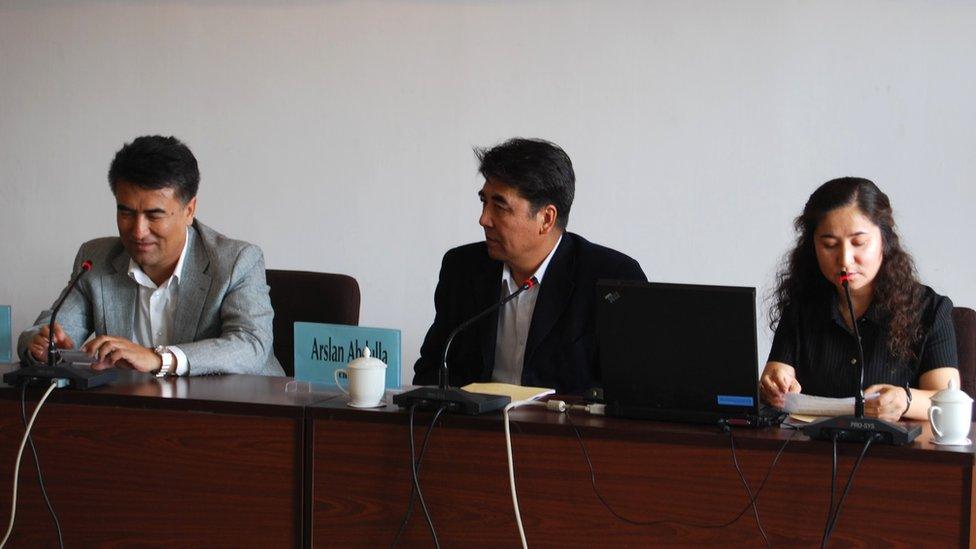
Mr Tiyip (left) with fellow academics Arslan Abdulla and Rahile Dawut who have also disappeared
Friends say that in 2017, he was on his way to Europe for a conference and to launch a co-operation with a German university. But at Beijing airport he was stopped and told he had to return to Xinjiang's capital Urumqi. That's where the trail ends, a former colleague of the professor told the BBC from the US.
He never returned home and his friends and relatives were soon questioned over corruption allegations around him.
Eventually, the family heard news he had been convicted of separatism and had received the death penalty, the former colleague explains - but China has never confirmed anything about his case.
Working as a researcher in the US, she is herself a Uighur originally from Xinjiang and asked to remain anonymous so as not to endanger her own friends and family back home.

China's hidden camps


She says the crackdown has created an atmosphere of horror where "everyone feel like they're being watched all the time".
"There is a huge sense of fear - people tell me they sleep in their clothes because no-one knows whether at night they might be taken away.
"A friend has described it to me as China waging a war of fear. And that friend has also disappeared since then."
Where is Tashpolat Tiyip now?
UN experts and rights groups say China is holding about one million Uighurs and other Muslims and minorities in detention camps.
The BBC meets Uighurs in Turkey who say their children are missing in China
China doesn't deny the massive operation, but says it is preventing terrorism and separatism by providing education to those detained, helping them to better integrate into mainstream Chinese society.
Prof Tiyip's friends say contacting loved ones in Xinjiang is difficult and only possible with code words to avoid alerting the authorities, who monitor communications. There are reports of people being detained for even having WhatsApp on their phone.
"When we talk to them, we can't use his name," the former colleague explains. "For instance we have to ask how the patient is, whether the doctors already gave a diagnosis, or whether he's been released from hospital."
"That's the only way that relatives can tell us anything."
Mr Tiyip's family believe he is still alive. They have also heard that he and other academics convicted of alleged separatism are used as scare examples in propaganda videos shown in detention centres.
The BBC visits the camps where China’s Muslims have their "thoughts transformed"
Mr Caster says the pattern of vanishing into a secret justice system is typical.
"The Chinese State does not want people to know about him and his ongoing incommunicado detention fits the textbook definition of an enforced disappearance."
What's been the reaction?
Since the disappearance of Mr Tiyip, supporters have again and again tried to draw attention to his case.
They believe he was given a two-year suspended death sentence - if so that period would now be ending and amid the uncertainty there are new efforts to rally support.
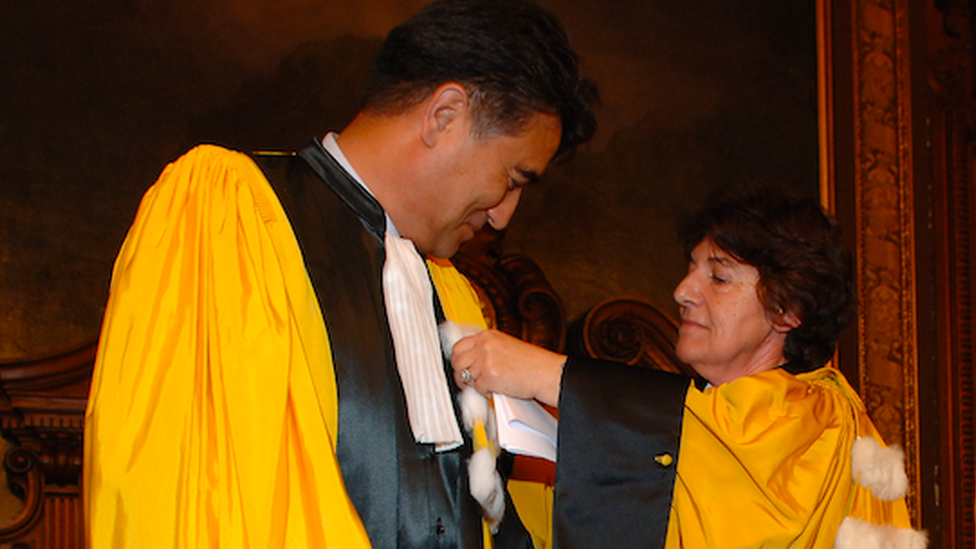
In 2008, Professor Tiyip received international accolades at France's EPHE university
Earlier this month, the American Association of Geographers (AAG) called for his release in a letter signed by more than 1,300 academics, external from around the world.
"Tashpolat Tiyip's arrest, detention and death sentence is a devastating threat to intellectual and scientific freedom in China and around the globe," according to Dr Gary Langham of the AAG.
The French university that had awarded the honorary degree also EPHE also urged for the release of Mr Tiyip, external, warning that it was part of a "wave of Chinese repression that few people in Europe know about".
Rights group Amnesty International in September described the trial as "secret and grossly unfair", external and has called for urgent action to urge China to release them.
Scholars at Risk has also released a statement, urging China to "immediately intervene", external to halt the execution and "secure his unconditional release".
The group warns that "in addition to the harm to Dr Tiyip and his family, such incidents have a chilling effect on academic freedom and suggest an attempt to undermine academic communities and limit free expression".
Last year, Pen America condemned the detention of the academic, external along with several other Uighur writers as "an outrageous abdication of the rule of law, and a clear demonstration of the government's broad-scale attack on Uyghur intellectual life under the guise of preventing 'separatism'".
"The fact that several prominent Uyghur intellectuals have disappeared only to re-emerge months later, sentenced to death or to life imprisonment, tells you all you need to know about the state of free expression in Xinjiang today," Summer Lopez, senior director of Free Expression Programs at Pen America, said.
Is Prof Tiyip the only one?
A wave of academics have vanished in China's Xinjiang province. Among the first high profile arrests was economist Ilham Tohti who was convicted of separatism and sentenced to life in prison in 2014.
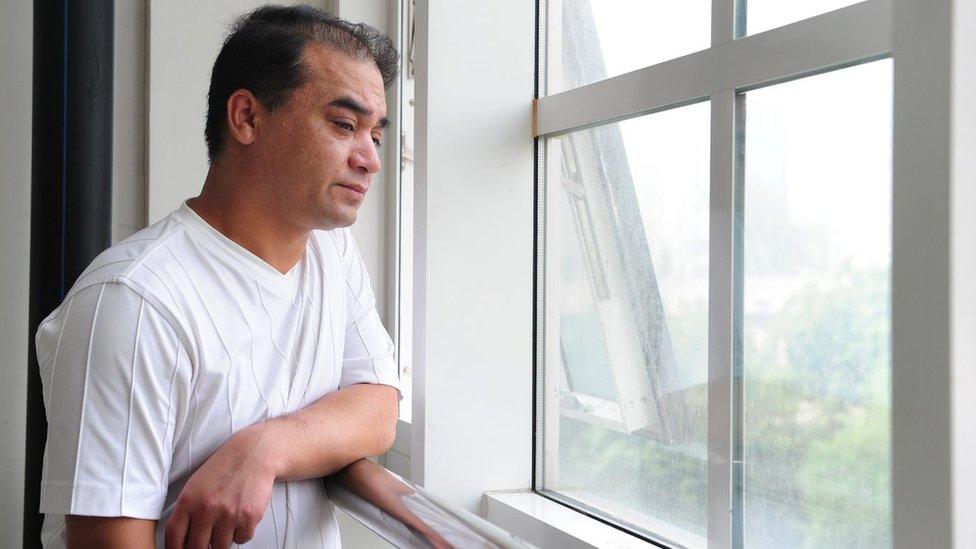
Ilham Tohti was awarded the Vaclaw Havel Prize while in prison in China
Mr Tohti had been a moderate critic of Beijing's policies towards Uighurs, questioning the government's role in persistent violent confrontations between Uighurs and the dominant Han Chinese.
Last month, he was awarded the Council of Europe's Vaclaw Havel Prize for human rights, external.
Another example is anthropologist Rahile Dawut, also of Xinjiang University.
Like Mr Tiyip, she'd long been praised by Chinese authorities as a model academic, applauded for their integration within the Chinese and global academic context.
Ms Dawut disappeared in late 2017, external and has not been heard of since. Efforts to understand what happened to her or what she might have been charged with, have been futile.
- Published8 November 2018
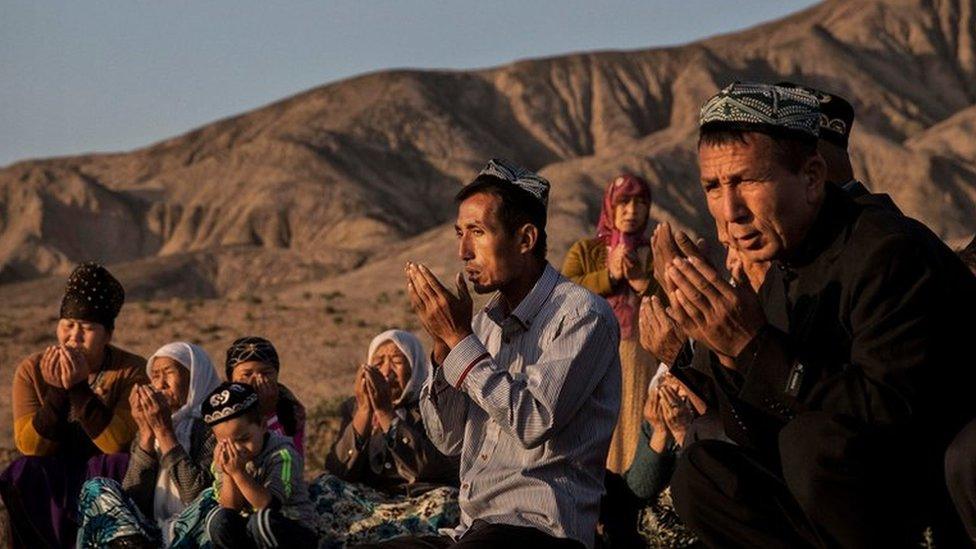
- Published7 July 2019

- Published7 July 2019
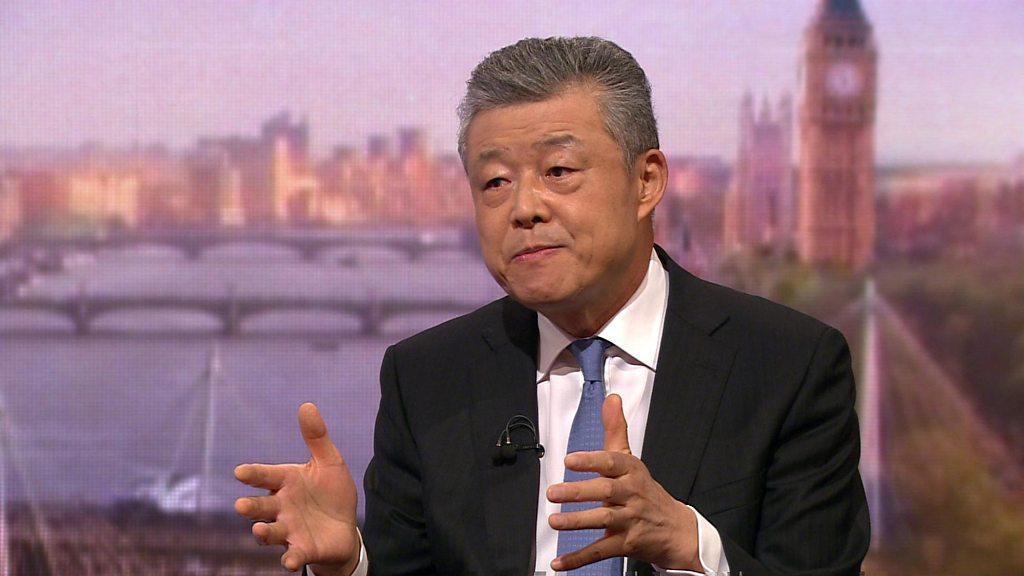
- Published11 February 2019
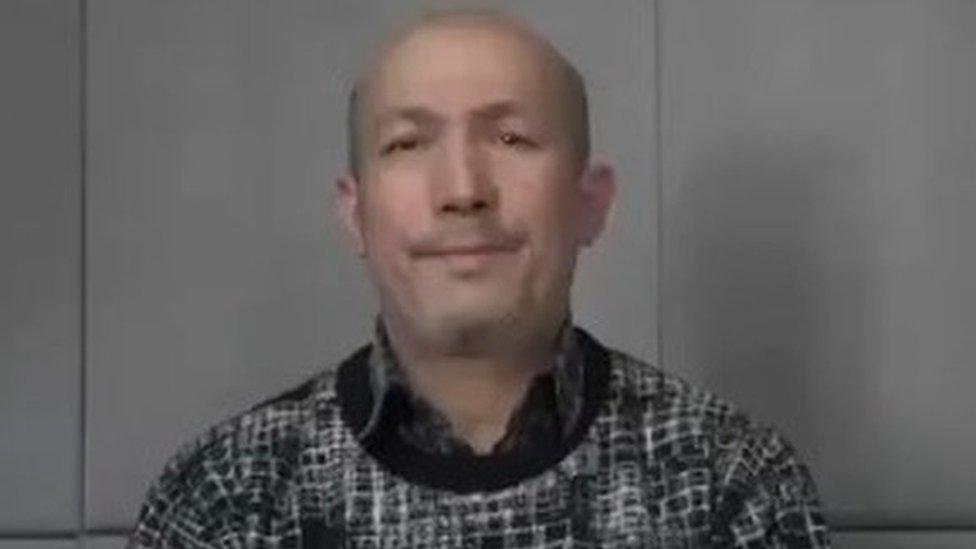
- Published4 July 2019
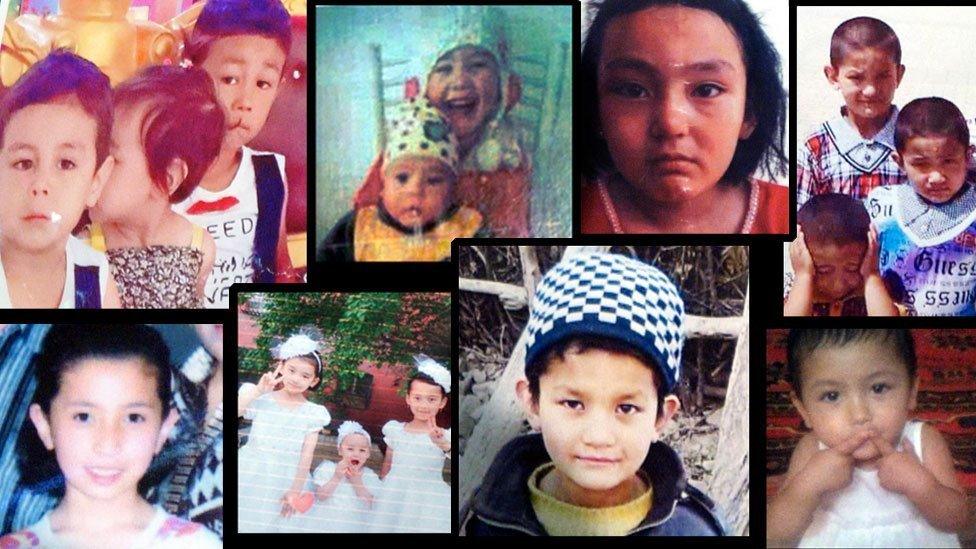
- Published21 June 2019
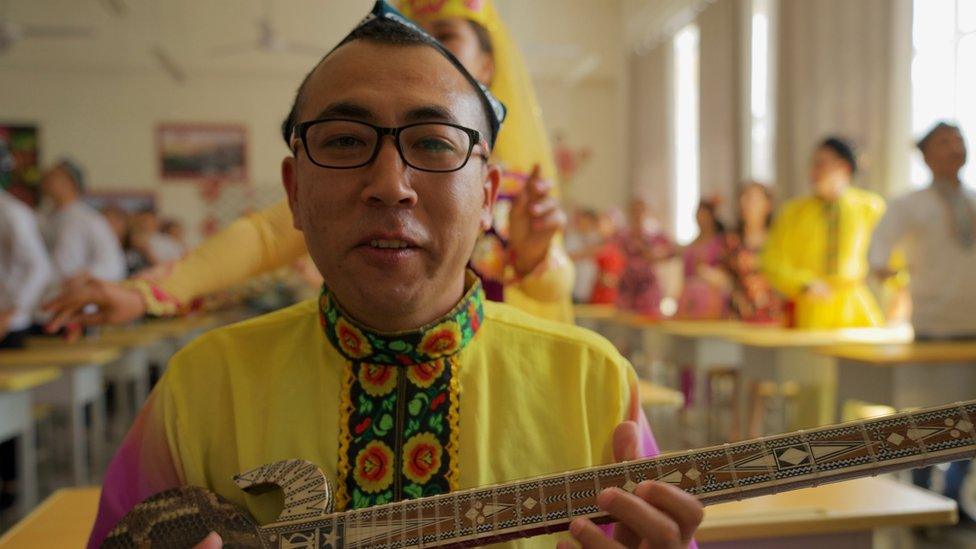
- Published17 June 2019

- Published12 February 2019
